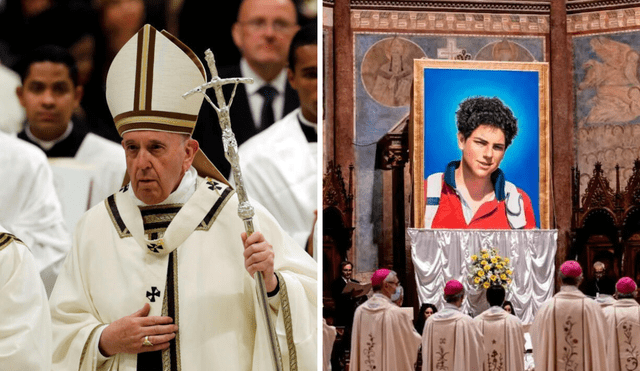Death of Pope Francis delays canonization of teen Carlo Acutis
The canonization ceremony for the first "millennial saint," originally scheduled for April 27 at the Vatican, has been postponed due to the death of Pope Francis. However, Vatican sources confirmed that the Catholic Jubilee Year will continue as planned.

The canonization of Carlo Acutis, originally scheduled for April 27, has been postponed following the death of Pope Francis on April 21, as reported by Reuters. The ceremony, which was expected to attract tens of thousands of visitors to St. Peter's Square, was set to honor the Italian teenager renowned for promoting the Catholic faith online.
While the ceremony has been delayed, the ongoing Catholic Jubilee Year will continue as scheduled, a Vatican spokesperson confirmed. Pope Francis, known for his reformist approach within the Church, passed away on Holy Monday at the age of 88, prompting the activation of the “Sede Vacante” protocol and a rescheduling of major Vatican events.
Who was Carlo Acutis?
Carlo Acutis was born on May 3, 1991, in London, but spent most of his life in Italy. He died on October 12, 2006, at the age of 15 after battling leukemia. During his short life, he used his skills in programming and digital media to share Catholic teachings online, making him a beloved figure among young Catholics worldwide.
Acutis was beatified in 2020 after two miraculous medical healings were attributed to him — a necessary step toward sainthood. He was given the title of "Blessed," and in July 2024, the College of Cardinals voted in favor of his canonization. The Vatican is expected to reschedule the ceremony soon.
A life of faith in the digital age
Carlo Acutis is seen as a symbol of how spiritual devotion can flourish in the modern world. “He was an ordinary boy who lived his childhood and teenage years among family, school, and childhood games,” said Bishop Domenico Sorrentino of Assisi. His life of faith was simple yet profound, earning him recognition as a model for young believers.
Before his death, Acutis reportedly considered becoming a priest. His contributions to the Church were recognized not only for his personal devotion but also for how he harnessed digital tools for evangelization. He is widely known as the first “influencer for God,” bridging traditional Catholic values with modern communication methods.













